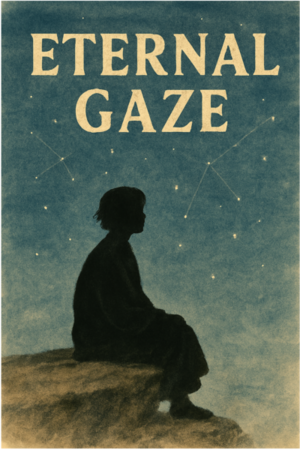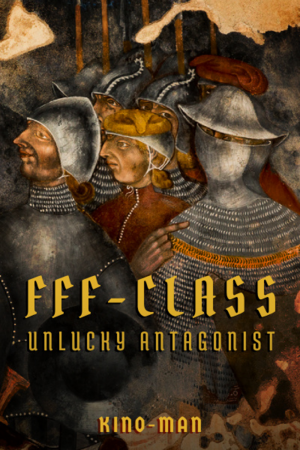Chapter 1:
Amber doesn't beg.
Eternal gaze
Chapter 1: Amber Doesn’t Beg
A child was born in the east of the redlight district with golden amber eyes.
Sounds like a blessing.
But not here.
Here, blessings are priced. Eyes are weighed. And children are measured not by their cries, but by how quietly they can be hidden.
He was born behind a reed curtain, in a room that smelled of sandalwood and sweat. No priest was summoned. No lamp was lit. No name was spoken. The women whispered, but not in joy. They whispered like they were burying something.
His mother, Illyia, was the highest-priced courtesan in the district. Her beauty was ritual. Her silence, currency. When she bore a son without sanction—no offering, no witness—the elders gathered. A child born in secret could ruin her rank. Could lower her price. Could remind buyers that even gods bleed.
So they buried the truth.
The boy was not killed. That would be wasteful.
He was allowed to live. But never to grow.
He was fed leftovers—rice crusts, curdled milk, the ends of fruit no one wanted. He slept near the kitchen fire, curled beside clay pots and ash. He was taught just enough to speak and walk. He could enter the brothel, but never through the front door. That was for the priced. He came through the back, barefoot, silent, shadow.
He was not given a name.
He was referred to—“that one,” “the quiet one,” “Illyia’s mistake.”
But never named.
Names were for offerings.
He was not one.
But silence needs shape. And hunger needs something to answer to.
So in the quiet moments—when the fire crackled and no one called for him, when the walls didn’t whisper and the reed curtain stayed closed—he gave himself a name.
Tenzin.
He didn’t know what it meant.
Only that it felt like something unclaimed.
Something no one could take from him.
At seven, he ran.
No plan. No coin. Just the ache of wanting more than scraps. He wandered past temple ruins and dry riverbeds until his legs gave out beneath a neem tree. He curled into the roots and waited to die.
But death didn’t come. Bandits did.
They dragged a merchant into the clearing—robes torn, mouth gagged. Tenzin watched from the roots as they killed him. Watched as they carved him. Watched as they ate.
He didn’t scream. He didn’t cry. He just waited.
When the bandits left, he crawled to the body. His stomach twisted. His hands shook. But the hunger was louder than disgust.
He ate.
Not much. Just enough to stop the shaking. Just enough to vomit twice, retch once, and force his body to accept what it was never meant to digest.
For the first time in his life, his hunger was quiet.
He survived three days like that—mud-caked, hollow-eyed, following the bandits for scraps. They caught him. Laughed. One threw a stone. Another reached for a blade.
He ran.
His feet bled. His stomach churned. But he made it back—to the brothel, to the reed curtain, to the place that never wanted him but never let him die.
The madam didn’t ask where he’d been. She just looked at him and gave him two choices.
“Serve,” she said, “or become a brothel boy.”
He didn’t ask what either meant. He remembered the servant boy his age—the one who spilled oil on a patron’s robe and was dragged out by the neck. He hadn’t come back.
So Tenzin chose brothel boy.
Not out of understanding. Not out of fear.
Out of instinct.
At seven, he entered the west wing.
The walls were darker there. The lamps burned lower. The boys didn’t speak unless spoken to. The air smelled of rosewater and iron. He was taught how to bathe without bruising. How to kneel without trembling. How to smile without meaning it. The west wing trained him well—through bruises, through silence, through rituals that stripped boys of their names and gave them roles instead.
At ten, the rituals changed.
The oil baths grew longer. The robes grew thinner. The instructions grew quieter.
He was no longer just a boy who served. He was a body to be prepared.
They didn’t explain. They didn’t ask. They simply began.
The first time, it was a man with a painted forehead and a voice like honeyed ash. He didn’t speak to Tenzin. He spoke to the madam. Then he nodded. Then he waited.
Tenzin was told to kneel. To breathe. To stay still.
He did.
The room smelled of rosewater and iron. The lamp flickered. The walls didn’t blink.
What happened next was not loud. Not fast. Not even cruel in the way cruelty usually is.
It was practiced.
It was quiet.
It was tradition.
Afterward, he was given turmeric paste and silence. No one looked him in the eye. No one said his name. He didn’t cry. He didn’t speak. He didn’t sleep.
He just lay there, staring at the ceiling, counting the cracks in the wood.
The next time, it was different. A new patron. A new ritual. A new silence.
By the third time, he stopped counting.
He learned how to leave his body without moving.
How to let the mind float while the skin stayed behind.
How to survive without flinching.
He was not the only one.
But he was the only one with amber eyes.
And amber, they said, was volatile.
By thirteen, it was time.
He sat cross-legged on the stone floor, a copper cup of anesthesia trembling in his hands. The half-blinded man stood over him, robes damp with sweat, voice slow and sour.
“Amber eyes don’t belong here,” he muttered. “They’re volatile.”
Tenzin looked up, his voice dry but sharp.
“If they’re that volatile and wanted, I can give you one for a few moments.”
The man snorted.
“You’ll get that pride chopped off in a few minutes.”
Tenzin didn’t flinch. He just stared into the cup, wondering if numbness would feel like forgetting.
Then the madam grabbed his wrist.
“Not yet,” she hissed. “A buyer’s come.”
He was dragged into the line—barefoot boys arranged like offerings. Tenzin kept his head down. His robe was clean. His body was untouched. His eyes were closed.
The room was quiet. The incense burned low. The half-blinded man stood at the edge, arms folded, waiting.
Then a voice spoke.
“The one with gold eyes.”
Soft. Smooth. Female.
He looked up.
She wasn’t wearing temple robes. Not even court silks. Her clothing was black—loose, shapeless, drowning her figure. The upper cloth hung from her shoulders like a storm cloud. The lower pants matched her height but billowed around her legs like smoke.
She didn’t smile. She didn’t blink.
She pointed.
“That one.”




Please sign in to leave a comment.